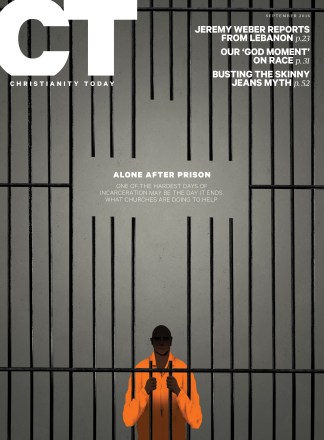Every time I see a billboard or commercial for Olive Garden, its former slogan runs through my mind: “When you’re here, you’re family!” It makes me chuckle; of course, I’ve never felt part of a big Italian family while eating my unlimited salad and breadsticks at the casual dining establishment.
Silly though it is, the slogan speaks to our desire to belong to other people in such a way that brother and sister trip off the tongue. So individualistic is American culture that we think we have a better chance finding this at a restaurant chain than in our own neighborhoods. In this regard, many Hispanic and black communities are a model of true belonging in a fragmented world.
They also reflect the nature of the early church, where Christians “had everything in common” and met together daily in the temple courts (Acts 2). Here is how third-century bishop Cyprian described their life together: “Our prayer is public and common, and when, we pray, we pray not for one but for the whole people, because we, the whole people, are one.”
Cyprian understood that individual is not really a Christian word (although person is). God intended the church to operate in such a way that, if one suffers, all do, and when one rejoices, all do too.
This issue of CT features many churches that can say, “When you’re here, you’re family!”—and mean it. Our cover story (p. 38) details the challenges prisoners face when their jail sentence ends. While traditional ministries have focused on prisoners behind bars, some new ones are stepping up to help them post-prison. Don’t miss our president Harold B. Smith’s essay on befriending ex-convicts, and staying friends even when things get messy (p. 48).
New data from the Fuller Youth Institute (p. 52) suggest that churches effectively engaging “the youth” treat them less like a demographic and more like family. According to Kara Powell and her research team, teenagers and young adults valued a sense of belonging over a trendy location, a “relevant” teaching style, and contemporary worship.
Even in Lebanon, where biological families are torn apart by violence and terror, the local church is stepping up to provide belonging. Senior news editor Jeremy Weber spoke with Arab Baptist leader Martin Accad for his excellent report from Lebanon’s “Napa Valley.” Accad says refugees are desperate for community and that, “If left alone, they risk radicalization.” Our report (p. 23) centers on churches that are being hospitable despite threats to their livelihood.
“Believers are never told to become one,” writes Joni Eareckson Tada. “We already are one and are expected to act like it.” This issue reflects a church that is acting like it.
Katelyn Beaty is Managing Editor of Christianity Today Magazine










